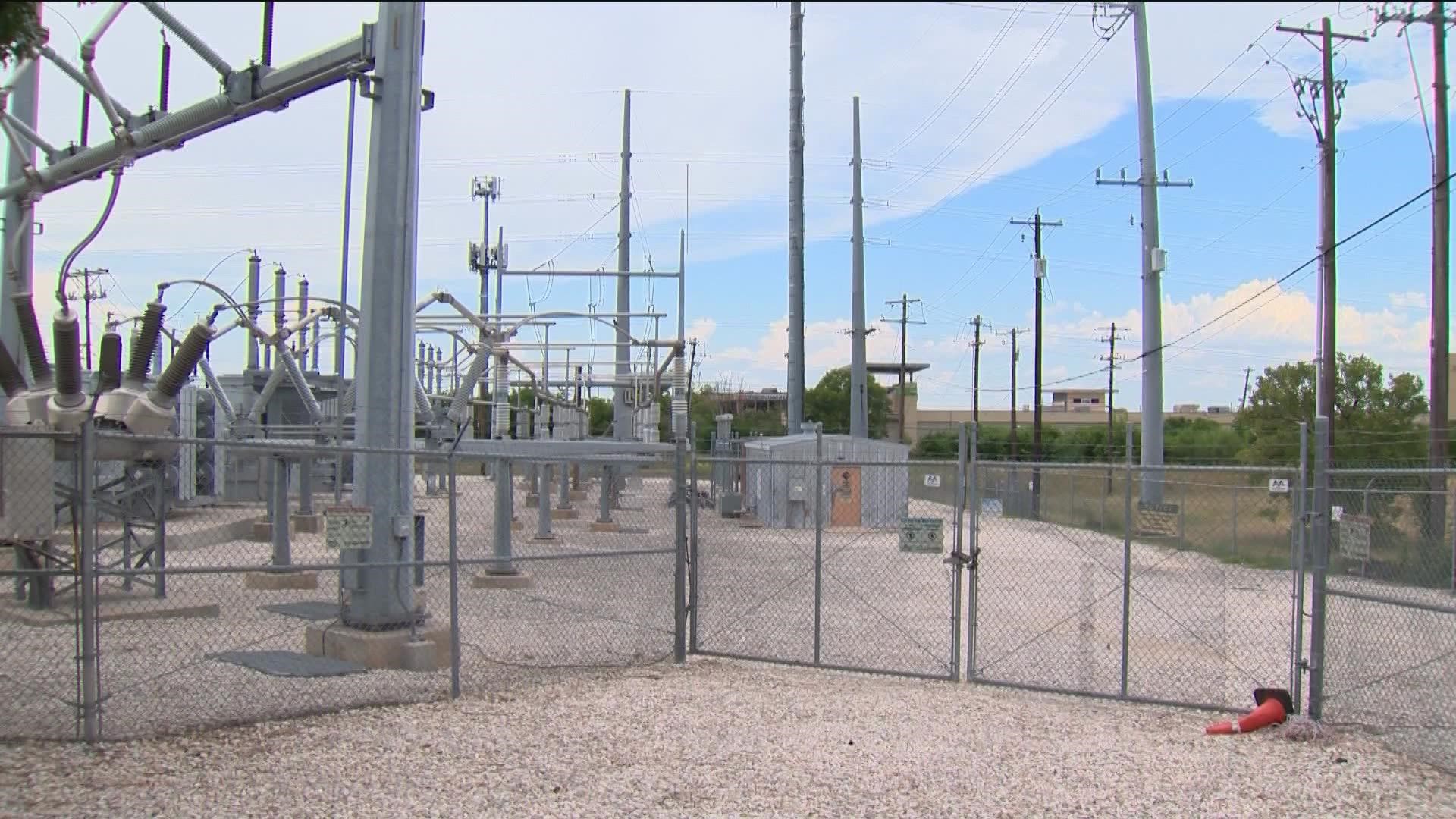AUSTIN, Texas — A state commission tasked with eliminating government waste passed recommendations to lawmakers on how Texas can improve electric power regulation.
This stems from the deadly February 2021 winter storm. It left millions without power for days as temperatures remained in single digits. Hundreds died.
The Public Utility Commission is the State’s electric power regulator.
The Texas Sunset Commission reviewed the agency and found six issues. Commissioners voted and passed all recommendations and modifications on the issues. Three of the four new recommendations passed.
Issue 1: “Without additional resources and clear decision-making processes in place, PUC cannot truly fulfill expectations for ensuring a reliable electric grid,” the decision material shows.
The commission recommends these changes to Texas law.
- Allocate additional funding to pay for a data analytic team and more engineering expertise. Sen. Drew Springer, Jr. added the PUC should work with the Legislative Budget Board and Sunset Commission staff to, “update the agency’s General Appropriations Act performance measures to track the agency’s achievement in using the funds appropriated by the exceptional item requests identified in the recommendation,” plus update the Sunset Commission on the status of implementing recommendations by Feb. 15, 2023.
- Authorize PUC to issue directives to the Electric Reliability Council of Texas (ERCOT) without the need of formal rule-making and allow stakeholders to formally give input. ERCOT manages the power grid for most Texans. Sen. Charles Schwertner, chairman, added the directive to be in writing and only during an emergency or other urgent situation. “If PUC’s direction to ERCOT is still necessary 72 hours after the emergency or urgent situation, PUC must use the more formal process established under the recommendation to provide documentation of its direction to ERCOT. Other aspects of the staff recommendation would remain unchanged,” Schwertener proposed.
- Give PUC the authority to reject or remand ERCOT protocols.
- Give authorization to ERCOT to limit the commissioners’ presence at executive sessions.
- Consolidate certain reporting requirements for electric regulation.
The commission directed these changes to PUC:
- Develop a definition for reliability. Schwertner added a May 1, 2023 deadline.
- Direct ERCOT and add input on re-evaluating performance measures.
- Approve assumptions used in electric industry reports.
- Develop policies to separate the commissioners’ roles and responsibilities
Issue 2: “To restore trust, PUC needs to further improve its public communication efforts.”
The commission recommends these changes to Texas law.
- Develop a communications plan, updating regularly.
- Allow public testimony on agenda items during commission meetings.
The commission directed these changes to PUC.
- Create a public communications guidance document.
- Provide online information that’s up-to-date and easily accessible.
- Prepare commission meeting minutes and place on website.
Issue 3: “PUC needs additional resources and attention focused on its water and wastewater regulation to avoid overburdening utilities and their customers.”
The commission recommends to give more money to the PUC to recover costs to regulate water and wastewater utilities. Springer added to also work with the Legislative Budget Board and Sunset Commission staff to “update the agency’s General Appropriations Act performance measures to track the agency’s achievement in using the funds appropriated by the exceptional item requests identified in the recommendation.” The update would be due by Feb. 15, 2023.
The commission directed PUC to review rules, process and guidance documents for water and wastewater regulation.
Issue 4: “PUC’s poor data practices and lack of policies and procedures limit its ability to best allocate resources and serve the regulated community.”
The commission directed these changes to PUC:
- Create a plan to improve data collection and analysis.
- Develop comprehensive policies and procedure for PUC’s Legal Division and Office of Policy and Docket Management.
- Create a manual for precedents, prioritizing rulings regarding water and wastewater regulation.
- Update the contract manager handbook and guide.
Issue 5: “Texas has a continuing need for PUC.”
The commission recommends these changes to Texas law:
- “Continue PUC for six years and remove the Sunset date of the agency’s enabling statute.”
- Update requirements regarding commissioner training.
- Abolish and modify certain PUC reporting requirements.
The commission directed PUC to “update its policy guiding the agency’s rule review process to ensure identified deficiencies in the rules are addressed,” the material shows.
Issue 6: “The state has a continuing need for OPUC (Office of Public Utility Counsel), but the agency should strengthen its processes for contracting with legal expert witnesses.”
The commission recommends to "continue OPUC for six years and remove the Sunset date of the agency’s enabling statute.”
The commission directed OPUC to “formalize and document certain contracting processes for legal expert witnesses,” the material shows.
New recommendations:
- (Schwertner) Add an additional commissioner as a nonvoting member of the ERCOT Board of Directors.
- (Schwertner) Amend Utilities Code to show ERCOT may enter into executive session, only to address contracts, competitively sensitive information, information related to the security of the regional electrical network, or any matter authorized under Government Code Section 551, Subchapter D (Open Meetings Act) that also applies to PUC.”
- (Rep. Justin Holland, vice chairman) Direct ERCOT to fund a “qualified economic planning staff to conduct robust economic analyses for transmission planning and other market or planning studies requiring economic analysis.” This would be an action carried out by PUC, not requiring changes to Texas law.
Schwertner also proposed a new recommendation to require the PUC chair to rotate yearly among the governor-appointed commissioners. However, he and the rest of the commission voted to remove that recommendation. They expect the issue to be considered during the legislative session.
The legislature makes the final decisions on statutory changes.

